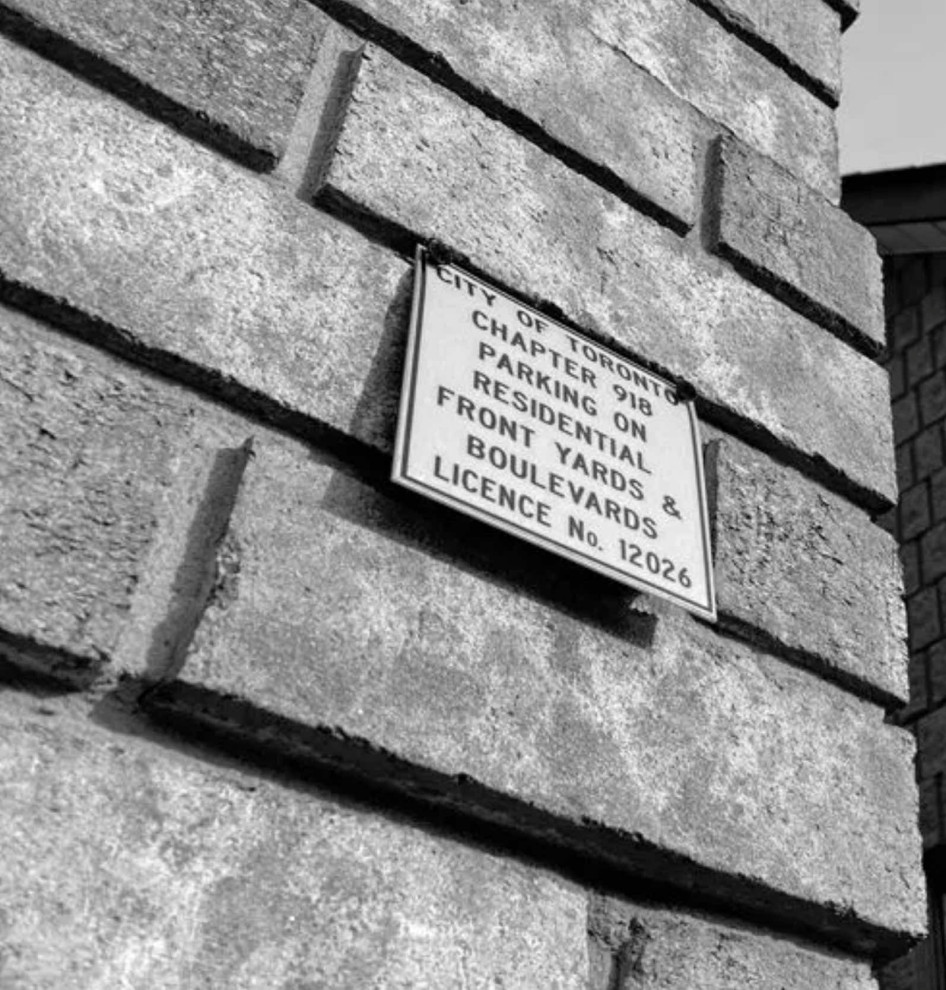How Do I Know if My Front Yard Parking Pad is Legal?

Residential Off-Street Front Yard Parking Pad
If you own a property in Toronto or are considering purchasing one, you may be wondering about the legality of your front yard parking pad. In a city where parking is a precious commodity, understanding the regulations surrounding front yard parking pads is essential to avoid potential issues and ensure compliance with municipal laws. Having a legal front yard parking pad can add tremendous value to a property, but you if you are purchasing a property, you do not want to be assuming that the existing parking pad is legal and thus paying more for the house than it is actually worth. So, how can you determine if your front yard parking pad is legal? Let's explore the key factors to consider.
Licensing Requirements:
The initial step in ascertaining the legality of your front yard parking pad involves verifying its licensing status. Contrary to popular belief, front yard parking pads have not been universally banned in Toronto. Most wards still permit them, albeit with varying criteria. Additionally, many existing parking pads were legalized before certain Wards were subject to restrictions.
Legal front yard parking pads require an annual license from the City of Toronto, with renewal fees typically around $303.32 plus HST (2024). It's crucial to ensure that the license is up to date and in good standing. The presence of a small, white, city-issued plaque may indicate that the parking pad is licensed, but it's essential to verify the status of the license.
Many parking pads in Toronto are illegal, even though the homeowner may have been parking on them without issue for many years. Some parking pads may have been legal at one point in time, but the new owners of the house you are purchasing did not know to get the license transferred to them. As a result, the parking pad is not legal anymore, even though the license plate that was given when the parking pad was legal is still present.
Transfer of Ownership:
The license for a front yard parking pad does not automatically transfer to the new property owner upon sale. The new owner must apply to have the license agreement transferred and renew it annually to maintain compliance.
Before purchasing a property with a front yard parking pad, buyers should confirm that the current owner has maintained the license and is willing to transfer it upon the successful closure of the sale. Sellers must also disclose the status of the parking pad and ensure that all necessary documentation is in order.
Due Diligence:
Conducting thorough due diligence is critical when assessing the legality of a front yard parking pad. Sellers should verify the current status before listing their property for sale, while buyers should inquire about the licensing and compliance of any existing facilities.
One way to know if a parking pad is legal, or was legal at some point in time, is if there is a small license plate mounted on the front porch or front wall of the house. But the presence of this plate does not necessarily mean that the parking pad is still legal. The best way is to check the updated list of licensed pads on the City of Toronto's website (see below for a link to this document).
If there are any doubts or uncertainties regarding the legality of a front yard parking pad, it's advisable to seek guidance from experienced real estate professionals or municipal authorities. They can provide valuable insight and assistance in navigating the requirements and ensuring compliance with local laws.
In Conclusion:
Determining the legality of a front yard parking pad in Toronto requires careful attention to licensing requirements, transfer of ownership procedures, and thorough due diligence. By verifying the status and seeking assistance from knowledgeable professionals, property owners can ensure compliance with municipal regulations and avoid potential legal issues.
Whether you're a homeowner seeking to confirm the legality of your front yard parking pad or a prospective buyer exploring property options, understanding the steps involved in assessing its legality is crucial. With the right information and guidance, you can navigate the process with confidence and peace of mind.
Remember that Green Apple Landscaping offers an assessment to determine if the parking pad is legal or if it can be legalized if it isn't. Assuming that the parking pad is not legal and you want to legalize it, we can help with permitting, a redesign as required, and make any updates to it to bring it up to the new standards in the By-Law such as using permeable pavers.
Resources
There are several resources you can reference as a starting point for learning more:
- Toronto Municipal Code – Chapter 918, Parking on Residential Front Yards and Boulevards. This is where you’ll find rules and regulations.
- Parking on Residential Front Yards and Boulevards Application. Here is the application, along with the requirements listed. Applications can still be made to acquire a front yard parking pad, but it is a lengthy process with a lot of red tape, fees, and special requirements that must be fulfilled. Green Apple Landscaping, with over 28 years of experience in assisting homeowners in obtaining new parking pads or legalizing existing ones, is fully equipped to guide you through the permitting process from beginning to end.
- Locations Licenced for Residential Off-Street Parking. This is Toronto’s alphabetized list of licensed address locations that allow for a front yard parking pad. It also lists what type of parking they have. While this list is a handy resource, it is always wise to speak to someone at the Off-Street Parking Office to validate the information.
